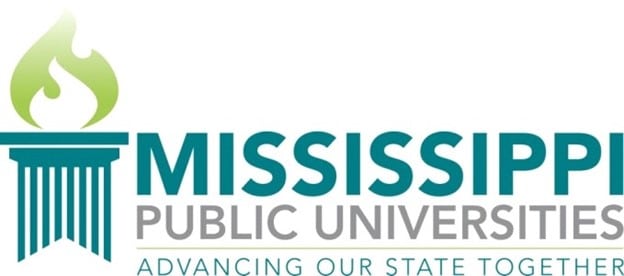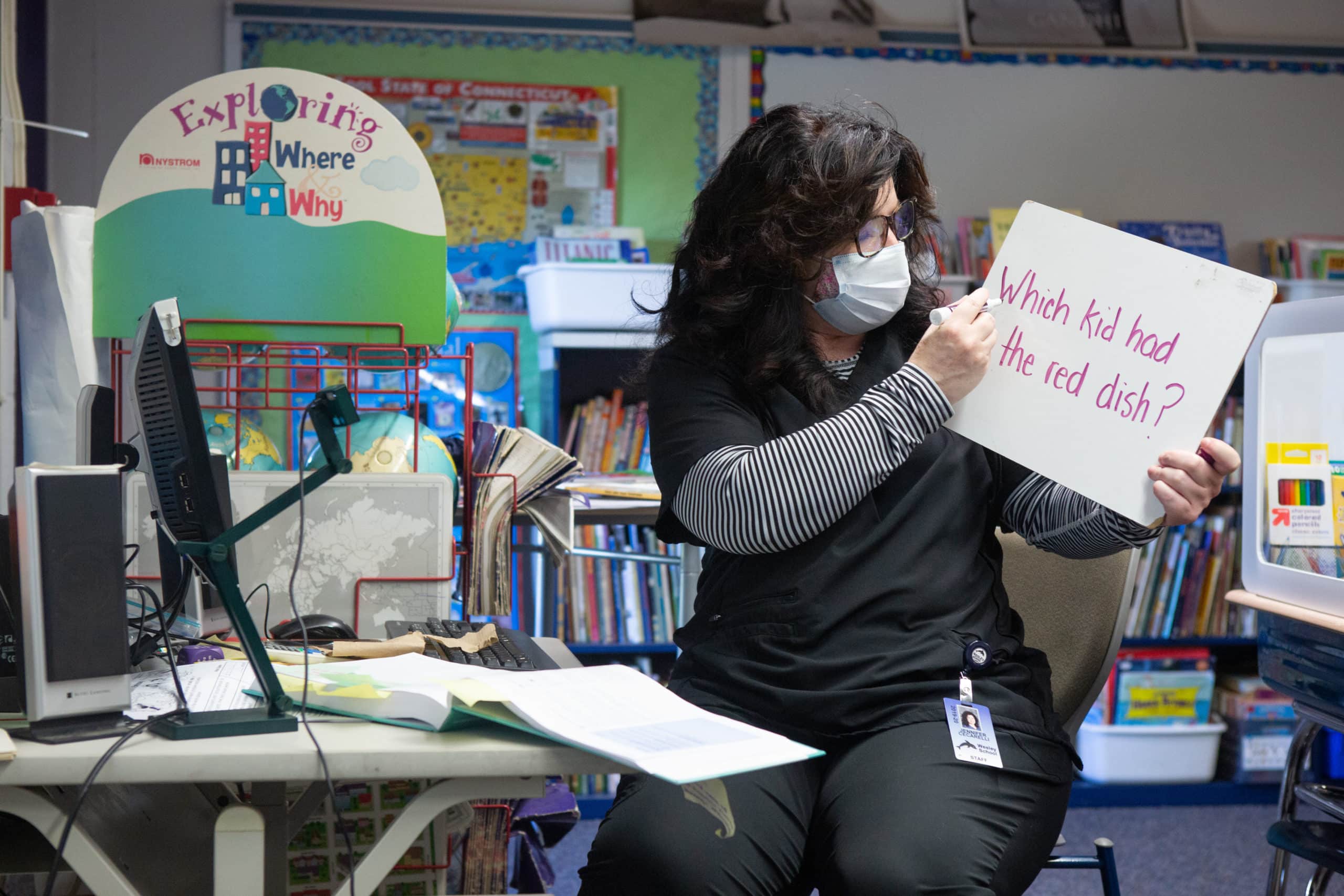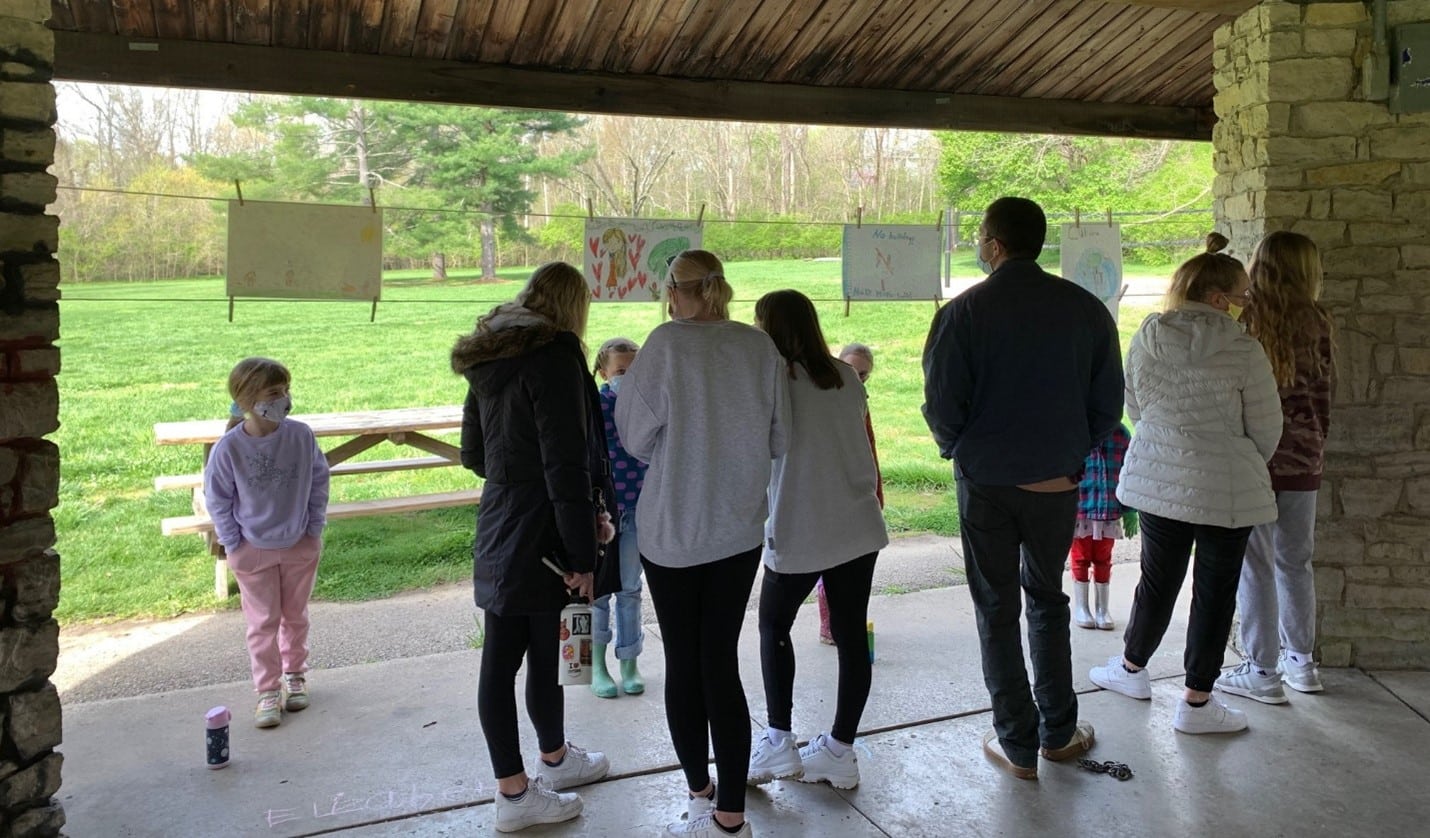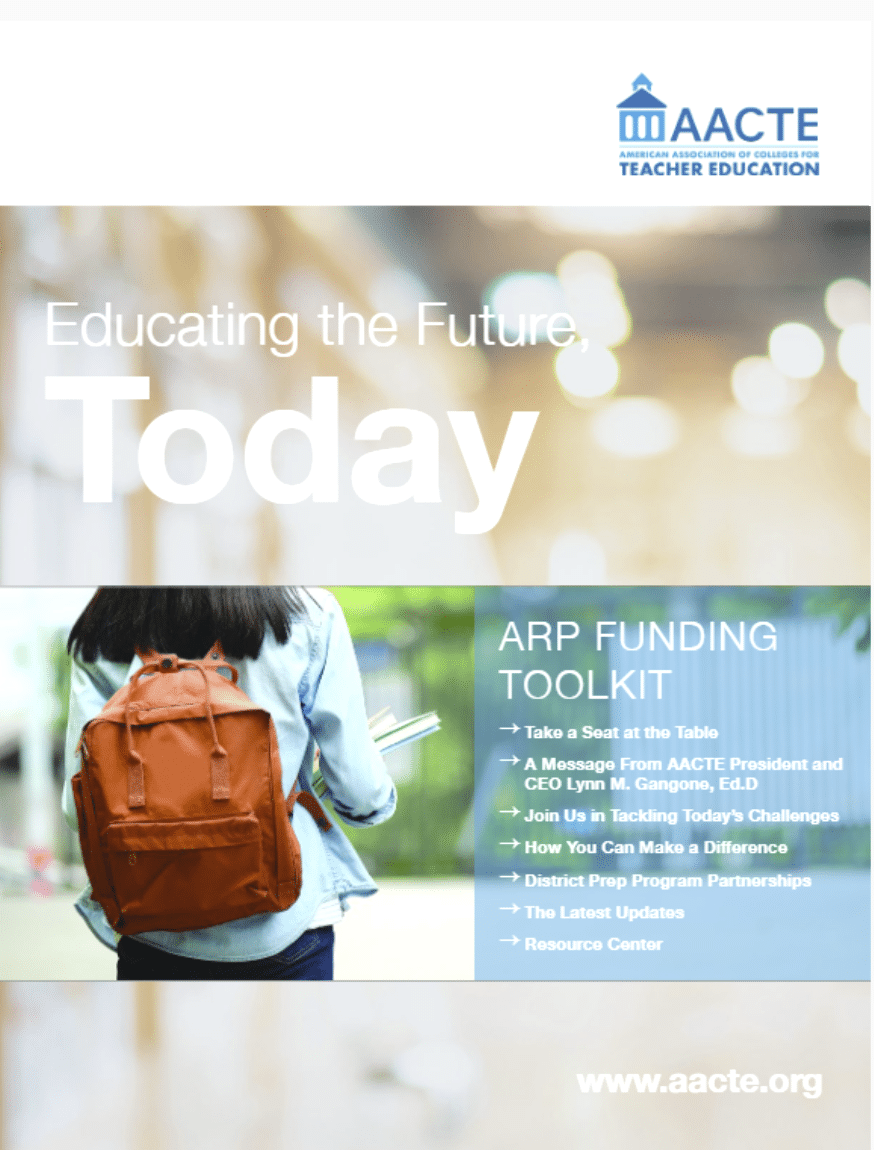05 Jul2022
By NEA and PDK International
 The National Education Association (NEA) and Phi Delta Kappa (PDK) announced today significant steps to strengthen their partnership to ensure every P-12 student in the Nation has access to a great teacher and opportunities for learning success. This partnership will continue to inspire middle and high school students who reflect the demographics of their communities to serve as the next generation of highly effective educators. Students will have opportunities to explore programs, curricula and additional resources to prepare them for a career in education through Educators Rising, an ongoing project of PDK developed with the support of NEA.
The National Education Association (NEA) and Phi Delta Kappa (PDK) announced today significant steps to strengthen their partnership to ensure every P-12 student in the Nation has access to a great teacher and opportunities for learning success. This partnership will continue to inspire middle and high school students who reflect the demographics of their communities to serve as the next generation of highly effective educators. Students will have opportunities to explore programs, curricula and additional resources to prepare them for a career in education through Educators Rising, an ongoing project of PDK developed with the support of NEA.
28 Jun2022
By Natalie Khairallah
Among the many challenges K-12 educators are gearing up for this upcoming academic year, building more equitable, inclusive schools is of utmost priority. The Massachusetts Institute of Technology (MIT) is proposing a new project for the U.S. Department of Education’s Innovation and Research program to implement and test a whole-school program called “Becoming a More Equitable Educator: Mindsets and Practice.”
MIT invites all district school administrators, teachers, and staff to participate in this 12-16 hour online course — and share with any partnering district.
17 Jun2022
By AZEdNews
 The Arizona Teacher Residency has accepted its first cohort of 30 future teachers, as well as the 30 supervising teachers who will be working with those teacher residents this next school year.
The Arizona Teacher Residency has accepted its first cohort of 30 future teachers, as well as the 30 supervising teachers who will be working with those teacher residents this next school year.
The Arizona Teacher Residency is a first-of-its-kind graduate program in Arizona modeled after medical residencies to help recruit, prepare, support and retain K-12 teachers, especially those with identities that have been underrepresented in the teaching population. The two-year program provides aspiring teachers with in-classroom experience, a living stipend, a master’s degree and a job at a partnering school district. Residents will receive mentoring and induction from a trained instructional mentor through the Arizona K12 Center in their second year with the support continuing into the third year.
13 Jun2022
By Tommy Stevens

Earlier this year, a gay music teacher in Iowa was pressured into resigning from a private school after being outed1. As a queer nonbinary Iowan and a preservice teacher, I am continually reckoning with my place in education. My education has and continues to be engulfed in heteronormativity. Elementary school through college, I have heard about Mrs. Y’s husband. I had Ms. Z as a permanent substitute twice because Mrs. X was having a baby. Mr. W often placed an open call for babysitters because he and his wife were having a date night. The narrative of a happily married husband and wife with children was and is so common it erases other ways of being. Indeed, I was shocked to discover during high school that my Kindergarten teacher was gay. He is one of two LGBTQ+ teachers I have had. I distinctly remember the relief of knowing that queer elementary teachers exist. If Mr. Knoer could be gay in 2006, I can be queer and trans in 2022.
17 May2022
By Kaitlyn Brennan
This weekly Washington Update is intended to keep members informed on Capitol Hill activities impacting the educator preparation community. The views expressed in this post do not necessarily reflect the views of AACTE.
After 45 years, the Department of Education has announced plans to update Section 504 of the Rehabilitation Act of 1973. Stay tuned for opportunities to provide feedback to stakeholders on what you would like to see. Take a read for more information on that and more below.
Department of Education Announces Plan to Update Section 504 of the Rehabilitation Act of 1973
Last Friday, the U.S. Department of Education announced plans to update Section 504 of the Rehabilitation Act of 1973. The forthcoming changes will mark the first update to the regulations in 45 years. The Department’s Section 504 regulations were the first set of regulations issued by the federal government that addressed the treatment of people with disabilities through a civil rights framework, rather than through solely a medical or vocational framework. Section 504 prohibits discrimination on the basis of disability in public and private programs and activities that receive federal financial assistance, including schools and postsecondary institutions.
“While the world has undergone enormous changes since 1977, the Department’s Section 504 regulations have remained, with few exceptions, unaltered,” said Assistant Secretary for Civil Rights Catherine E. Lhamon. “As we observe the 45th anniversary of these important regulations this month, it is time to start the process of updating them. Just as in 1977, the voices of people with disabilities must be heard and incorporated as we engage in that work.”
18 Jan2022
By Jean Cook and Shanderia Minor
The MDE is using American Rescue Plan Elementary and Secondary School Emergency Relief (ESSER) funds to cover the grants.
The MTR will provide grants to the universities’ educator preparation programs to enroll diverse participants to work toward their graduate degree and Mississippi teacher certification. MTR will include training alongside a mentor teacher, testing support, professional development, ongoing assessment and a commitment to teach in a geographical critical shortage school or district serving low-income children, racial/ethnic minorities and children with disabilities disproportionately impacted by COVID-19.
14 Dec2021
By Caron Blanton

Mississippi Public Universities support the state’s children and K-12 schools across the state in numerous ways. In addition to preparing the teaching workforce through the education academic degree programs, the universities support teachers, students, and schools through outreach efforts ranging from a partnership school for middle school students located on a university campus to a clinic housed at a high school to help teens stay well so they can perform at their best in the classroom and beyond.
The Mississippi Excellence in Teaching Program (METP) is a collaboration between the University of Mississippi and Mississippi State University to attract top-performing students into the education profession with full financial support, travel abroad opportunities and invaluable professional incentives. METP aims to increase the import—and reduce the export—of talented educators to create a pipeline of new teachers committed to Mississippi’s future. All students who enter the program make a five-year commitment to teach in Mississippi after graduation. Funded by the Robert M. Hearin Support Foundation of Jackson, METP is designed to create a unique “honors college-style” learning experience for high-achieving education students and promote collaboration between students and faculty at both universities.
22 Nov2021
By Nicole Geary

Photo by Allison Shelley for EDUimages
This article originally appeared in MSUToday and is reprinted with permission.
Students interested in becoming elementary teachers now have an exciting new pathway at Michigan State University.
Faculty in the nationally known MSU College of Education have redesigned the elementary Teacher Preparation Program to not only address changes in how Michigan certifies new teachers, but to ensure that Spartan educators are even better prepared to meet the challenges of today’s schools.
“It is important that we continue to evolve as a teacher preparation program to reflect changing times,” said Tonya Bartell, associate professor and associate director of elementary programs. “This means preparing high-quality beginning teachers ready to serve our nation’s diverse student population, including teaching English learners and students with disabilities, and serving as agents of change toward equity and social justice.”
25 Oct2021
By Grady Wilburn and James Elias
The reading and mathematics scores of 13-year-old students fell between 2012 and 2020—the first time in the almost 50-year history of the National Assessment of Educational Progress (NAEP) long-term trend (LTT) assessment—according to results released today by the National Center for Education Statistics (NCES). The performance of 9-year-olds remained the same in both subjects compared to 2012.
In both age groups and subjects, the scores of lower-performing students declined since 2012, the previous assessment year, mirroring patterns observed in other subjects assessed by NAEP, also known as The Nation’s Report Card.
22 Jul2021
By Michael A. Chuntz
Ed Prep Matters features the “AACTE Teacher Stories,” series to spotlight the experiences of K-12 educators who are attending or are alumni of AACTE member institutions. AACTE invites preservice and in-service school teachers to reflect on how they are applying the practices, frameworks, and strategies they acquired during their educator preparation program (EPP) studies to assure student success. Email stories to knorfleet@aacte.org.
This article is authored by Michael A. Chuntz, a 5th grade math, science, and social studies teacher at Somerset Intermediate School in North Plainfield, NJ. This story was nominated by Heejung An, his master’s thesis advisor at the College of Education, William Paterson University of New Jersey, where he obtained his master’s degree in May 2021.

Let’s face it, most of us taught to black boxes the entirety of the 2020-2021 school year. Were our students even there? Were they aimlessly scrolling through TikTok the entire class? Were they sleeping? Or were they taking care of their younger siblings while their family members worked? More importantly, were they learning?
17 Jun2021
By James Loy
Ed Prep Matters features the “AACTE Teacher Stories,” series to spotlight the experiences of K-12 educators who are attending or are alumni of AACTE member institutions. AACTE invites preservice and in-service school teachers to reflect on how they are applying the practices, frameworks, and strategies they acquired during their educator preparation program (EPP) studies to assure student success. Email stories to knorfleet@aacte.org.
In this article, Miami University’s James Loy profiles Alli Huff, an alumna of the university’s teacher education program, who shares how she applied concepts like “inverting the curriculum” that propelled students to become co-curriculum creators. Huff was introduced to the student-centered approach by her teacher preparation program educators. The article originally appeared on the University of Miami website and is reprinted with permission.

11 Jun2021
By Shalander Samuels
AACTE Teacher Stories is a new series highlighting the experiences of K-12 educators who are attending or alumni of AACTE member institutions.
 As an AACTE National Holmes Scholar who graduated from the University of Central Florida, I learned that to persevere I must overcome some fears regardless of how grand they might seem. After graduation, I opted to take the path of returning to the K-12 classroom as a teacher and reading specialist rather than transitioning to higher education. In the midst of COVID-19, I was uncertain and fearful, like many of my fellow teachers. The new school year highlighted my and others’ fears, forcing us to consider our roles as frontline workers in education. My English class read the text, What Fear Can Teach Us, a speech by Karen Thompson Walker. In her speech, Walker posits “We all know what it’s like to be afraid. We know how fear feels, but I’m not sure if we spend enough time thinking about what fear means.”
As an AACTE National Holmes Scholar who graduated from the University of Central Florida, I learned that to persevere I must overcome some fears regardless of how grand they might seem. After graduation, I opted to take the path of returning to the K-12 classroom as a teacher and reading specialist rather than transitioning to higher education. In the midst of COVID-19, I was uncertain and fearful, like many of my fellow teachers. The new school year highlighted my and others’ fears, forcing us to consider our roles as frontline workers in education. My English class read the text, What Fear Can Teach Us, a speech by Karen Thompson Walker. In her speech, Walker posits “We all know what it’s like to be afraid. We know how fear feels, but I’m not sure if we spend enough time thinking about what fear means.”
01 Jun2021
By Jane E. West and Kaitlyn Brennan
 This blog post is written by AACTE consultant Jane West and is intended to provide updated information. The views expressed in this post do not necessarily reflect the views of AACTE.
This blog post is written by AACTE consultant Jane West and is intended to provide updated information. The views expressed in this post do not necessarily reflect the views of AACTE.
Biden- Harris Administration Unveils Massive Budget with Historic Investments in Education
On the Friday before the long-awaited Memorial Day holiday, just as Members of Congress were headed home and the rest of us were finalizing our plans for the long weekend, the White House unveiled the complete version of the Biden-Harris Administration’s full budget proposal for FY 2022.
The budget proposal calls for $102.8 billion for the Department of Education—a $29.8 billion or 41% increase to the Department’s current spending levels. This increase in funding would be the largest increase the Department has seen since its inception in 1979.
24 May2021
By Michael Rose
 President Biden signed into law the American Rescue Plan Act (ARP) in March, which includes $122 billion for the ARP Elementary and Secondary School Emergency Relief (ARP ESSER) Fund. The ARP ESSER funds are intended to help state educational agencies and school districts safely reopen and address the impact of COVID-19 on the nation’s students. AACTE has developed the Educating the Future, Today toolkit to help members navigate conversations with state or local education leaders, encouraging them to use ESSER funds to staff classrooms with teacher candidates.
President Biden signed into law the American Rescue Plan Act (ARP) in March, which includes $122 billion for the ARP Elementary and Secondary School Emergency Relief (ARP ESSER) Fund. The ARP ESSER funds are intended to help state educational agencies and school districts safely reopen and address the impact of COVID-19 on the nation’s students. AACTE has developed the Educating the Future, Today toolkit to help members navigate conversations with state or local education leaders, encouraging them to use ESSER funds to staff classrooms with teacher candidates.
These funds provide a unique opportunity for school districts and educator preparation programs to address the teacher pipeline. As the U.S. Department of Education’s noted in its COVID-19 Handbook, Volume 2: Roadmap to Reopening Safely and Meeting All Students’ Needs, ARP ESSER funds can be used to staff classrooms with teacher candidates, thereby providing them with practical experience while helping alleviate the challenges teachers are encountering with the transition back to in person teaching.
21 May2021
By Laurie Henry

Photo by Allison Shelley for EDUimages
This thought leadership article is written by an AACTE member. The views expressed in this post do not necessarily reflect the views of AACTE.
The COVID-19 pandemic has set back learning for millions of students and exacerbated existing educational inequalities countrywide. A recent study by McKinsey Analysis found that Black, Latinx and lower-income students are less likely to have access to high-quality remote learning, resulting in their falling further behind and expanding the achievement gap by 15% to 20%. To help these students overcome pandemic learning loss, the Partnering Aspiring Teachers with High-Need Schools (PATHS) to Tutor Act was introduced on February 25 by a bipartisan group, including Senators Cory Booker (D-NJ), John Cornyn (R-TX), Chris Murphy (D-CT), and Susan Collins (R-ME).
 The National Education Association (NEA) and Phi Delta Kappa (PDK) announced today significant steps to strengthen their partnership to ensure every P-12 student in the Nation has access to a great teacher and opportunities for learning success. This partnership will continue to inspire middle and high school students who reflect the demographics of their communities to serve as the next generation of highly effective educators. Students will have opportunities to explore programs, curricula and additional resources to prepare them for a career in education through Educators Rising, an ongoing project of PDK developed with the support of NEA.
The National Education Association (NEA) and Phi Delta Kappa (PDK) announced today significant steps to strengthen their partnership to ensure every P-12 student in the Nation has access to a great teacher and opportunities for learning success. This partnership will continue to inspire middle and high school students who reflect the demographics of their communities to serve as the next generation of highly effective educators. Students will have opportunities to explore programs, curricula and additional resources to prepare them for a career in education through Educators Rising, an ongoing project of PDK developed with the support of NEA.












 As an AACTE National Holmes Scholar who graduated from the University of Central Florida, I learned that to persevere I must overcome some fears regardless of how grand they might seem. After graduation, I opted to take the path of returning to the K-12 classroom as a teacher and reading specialist rather than transitioning to higher education. In the midst of COVID-19, I was uncertain and fearful, like many of my fellow teachers. The new school year highlighted my and others’ fears, forcing us to consider our roles as frontline workers in education. My English class read the text, What Fear Can Teach Us, a speech by Karen Thompson Walker. In her speech, Walker posits “We all know what it’s like to be afraid. We know how fear feels, but I’m not sure if we spend enough time thinking about what fear means.”
As an AACTE National Holmes Scholar who graduated from the University of Central Florida, I learned that to persevere I must overcome some fears regardless of how grand they might seem. After graduation, I opted to take the path of returning to the K-12 classroom as a teacher and reading specialist rather than transitioning to higher education. In the midst of COVID-19, I was uncertain and fearful, like many of my fellow teachers. The new school year highlighted my and others’ fears, forcing us to consider our roles as frontline workers in education. My English class read the text, What Fear Can Teach Us, a speech by Karen Thompson Walker. In her speech, Walker posits “We all know what it’s like to be afraid. We know how fear feels, but I’m not sure if we spend enough time thinking about what fear means.” This blog post is written by AACTE consultant Jane West and is intended to provide updated information. The views expressed in this post do not necessarily reflect the views of AACTE.
This blog post is written by AACTE consultant Jane West and is intended to provide updated information. The views expressed in this post do not necessarily reflect the views of AACTE.  President Biden signed into law the American Rescue Plan Act (ARP) in March, which includes $122 billion for the ARP Elementary and Secondary School Emergency Relief (ARP ESSER) Fund. The ARP ESSER funds are intended to help state educational agencies and school districts safely reopen and address the impact of COVID-19 on the nation’s students. AACTE has developed the
President Biden signed into law the American Rescue Plan Act (ARP) in March, which includes $122 billion for the ARP Elementary and Secondary School Emergency Relief (ARP ESSER) Fund. The ARP ESSER funds are intended to help state educational agencies and school districts safely reopen and address the impact of COVID-19 on the nation’s students. AACTE has developed the 